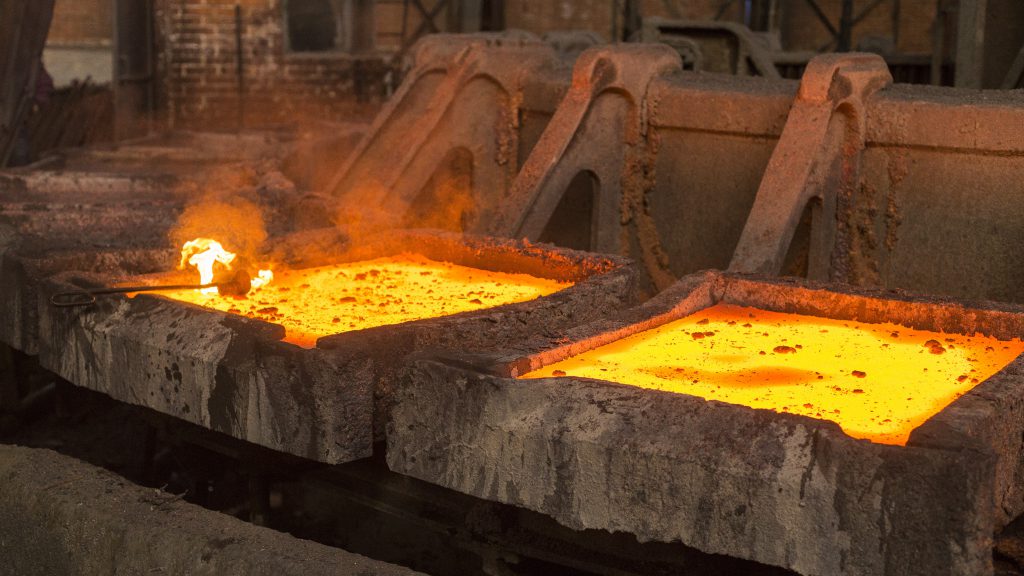Column: Copper squeezed in the United States but China has plenty

The London Metal Exchange (LME) copper price hit a record nominal high of $11,104.50 per metric ton on Monday.
The London market is playing catch-up with its US peer CME Group, where a vicious short squeeze has been playing out on the Comex contract.
Traders are now scrambling to ship metal to CME warehouses in the United States to cover short positions.
The panic has added fuel to a rally that has driven the copper price up by 27% since January and reinforced a bull narrative of a market caught between constrained supply and green demand boom.
However, not everyone is short of copper. China, the world’s largest buyer, has plenty of the stuff.
This doesn’t offer much relief for those short of the CME contract, at least directly, but it’s a useful reminder the world hasn’t run out of copper just yet.
Strong seasonal surge
Inventory registered with the Shanghai Futures Exchange (ShFE) stood at 291,020 metric tons at the end of last week, compared with London Metal Exchange (LME) stocks of 105,900 tons and CME stocks of just 18,244 tons.
This year brought the usual seasonal stocks surge around the lunar new year holidays but it’s been the strongest since 2020, a year of Covid-19 disruption.
Headline ShFE inventory peaked at 300,045 tons in the middle of April and has stayed around those elevated heights, the usual post-holiday drawdown so far conspicuous by its absence.
There are another 45,000 tons of bonded copper registered with ShFE’s international branch, the International Energy Exchange.
The build in Chinese exchange stocks lifted global exchange inventory to 491,000 tons at the end of March, the highest monthly level since August 2021.
Stuttering demand, higher supply
Weak spot demand, robust imports and rising domestic output have combined to keep China’s exchange inventories high.
Chinese buyers, like those everywhere else, have reacted to copper’s sharp rally by de-stocking, which is probably why the seasonal post-holiday decline in ShFE stocks hasn’t yet kicked in.
Meanwhile, Chinese imports of refined metal have been running at a healthy clip since the middle of last year. Imports accelerated from 1.65 million tons in the first half of 2023 to 2.07 million in the second half.
The pace dropped only slightly in the first four months of this year with cumulative imports of 1.25 million tonnes up by 17% on the same period of 2023.
Net imports of 1.18 million tonnes were up by a sharper 26% on the year-earlier period reflecting lower exports, which fell to 70,400 tons from 129,000.
Significantly, imports of raw material have also been rising this year.
Inbound volumes of copper concentrate rose by 7% year-on-year to 9.34 million tons in January-April, Chinese players evidently adjusting to the loss of the Cobre Panama mine after its closure at the end of 2023.
Higher copper concentrates availability has translated into higher domestic production of refined copper. After rising by 8% in the first quarter of the year, output growth accelerated to 9% in April.
A March agreement by Chinese smelters to curtail output due to uneconomic treatment terms was one of the triggers for copper’s super-charged rally but any impact on the country’s production rate is so far hard to discern.

Import premium collapse
The combination of elevated stocks and super-high prices has caused a collapse in the Yangshan premium , a closely-tracked indicator of China’s copper import appetite.
The premium is currently assessed by local data provider Shanghai Metal Markets at minus $5 per ton, the first time it has fallen into negative territory since the data series was launched in 2013.
The spot import door has just firmly closed. Metal will still flow into China under annual supply deals, which tend to be favoured by larger buyers, but arrivals will likely drop a couple of gears relative to the last few months.
This may allow CME shorts some flex in re-routing shipments of South American copper from China to US ports.
CME’s list of deliverable brands doesn’t include either Russian or Chinese brands, limiting the potential for a straight stocks transfer from the LME, where they accounted for two-thirds of warranted inventory at the end of April.
China clearly won’t miss the extra import units in the short term as the price spike suppresses buying at every stage of the product manufacturing chain.
Disconnect
This copper rally has been driven by fund buyers and accentuated by trade short position holders being forced to cover.
Investors are still arriving at the bull party. Money managers have lifted their outright long positions on the CME contract to a near six-year high of 141,204 contracts.
Investment fund long positions on the LME have also flexed wider over the last week to 107,385 lots, the most bullish positioning since the LME launched its Commitments of Traders Report in 2018.
It takes two to tango in a bull market and it’s the CME shorts that are also contributing to the upside momentum.
However, assuming traders can shift copper to CME warehouses and rebuild depleted stocks, the current disconnect between CME and LME pricing will be closed.
That will leave the far larger disconnect between price and supply chain reality.
Can copper keep rising if the world’s largest physical consumer stops buying? And if China won’t pay these prices, who else will?
(The opinions expressed here are those of the author, Andy Home, a columnist for Reuters.)
(Editing by Jane Merriman)
More News
Capital signs civil works, tailings contract with Reko Diq
The contract will run through December 2028 and is expected to generate over $60 million in annual revenue.
April 02, 2025 | 03:31 pm
PDAC video: Energy Fuels produces rare earths using fast process, CEO says
The company made on-spec neodymium-praseodymium in less than a week at its White Mesa uranium mill.
April 02, 2025 | 12:52 pm
{{ commodity.name }}
{{ post.title }}
{{ post.excerpt }}
{{ post.date }}



Comments